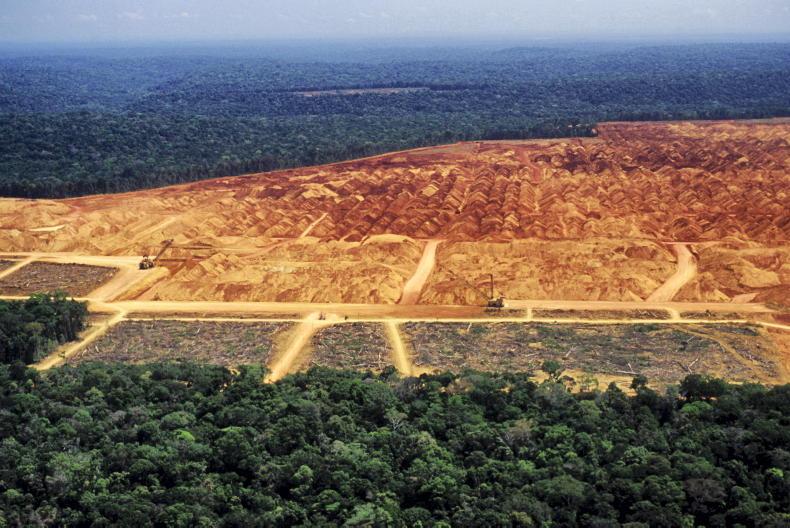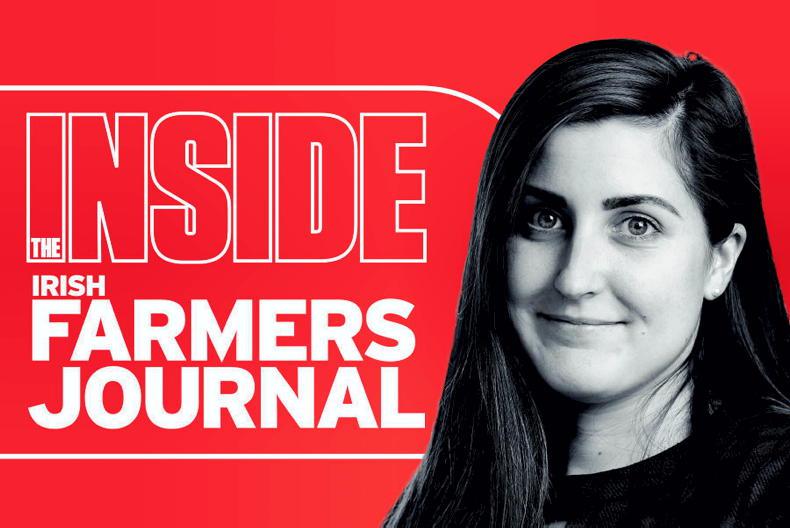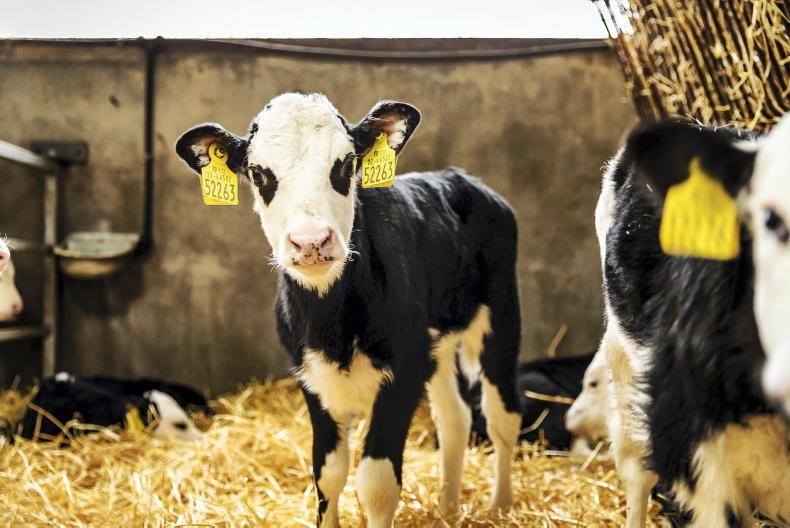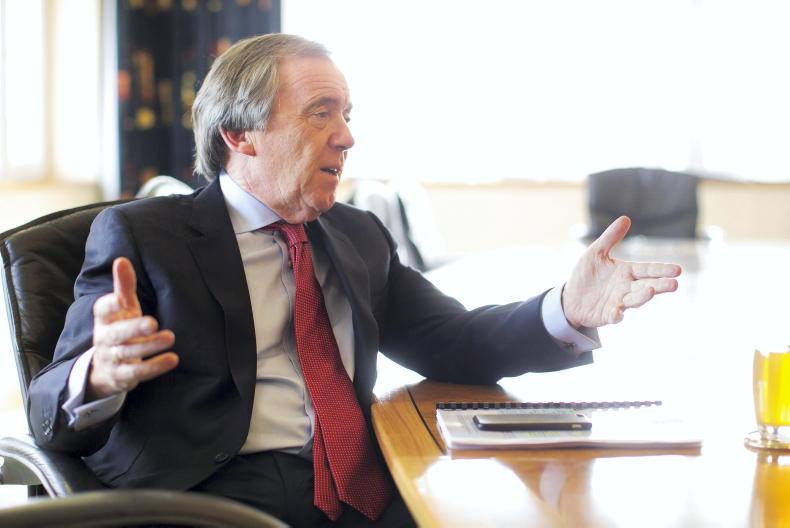Billy Kelleher MEP said this week that the EU legislation on not importing beef from land that has been deforested after 31 December 2020 should be the “death knell” for cattle and beef imports from South America.
In fact, the fact that the EU will have legislation in place preventing imports from deforested land could make it easier to secure approval by member states for the deal because this legislation will be used to demonstrate that the EU has in place a mechanism to strictly regulate beef imports.
There has also been considerable opposition voiced in the European Parliament for the deal on several occasions and it remains to be seen how this legislation will affect that.
The farmer and factory protests about Europe not being able to accommodate an extra 99,000t of Mercosur beef were disregarded when the deal was agreed in June 2019.
The only concession was the agreement of a €1bn fund to offset any damage caused to beef producers from the deal.

With the subsequent passing of the EU Farm to Fork policy and Green Deal, which imposes serious production constraints on EU farmers, the issue of leakage or outsourcing agri food, beef in particular, came to the fore.
This legislation is an attempt by the EU to address the issue and could well be enough to get approval over the line.
EU keen for the deal
While farmers across the EU may be opposed to the deal, the reality is that the large industrial sectors of the EU economy will benefit from the deal.
The car and car parts industry, which are important to Germany, France, Italy and Spain, are all major winners in the deal as the Mercosur countries are a highly protected market for the sector.
Elimination of the current 35% tariffs on cars and 14% to 20% on car parts and components will enable the EU to significantly increase exports.
The same applies for electrical goods and technology products and one that is of major interest to Ireland, the pharmaceutical sector.
Currently, these are subject to 14% tariffs, while chemicals are subject to an 18% tariff on entering Mercosur countries from the EU.
Impact assessment on Ireland
In June 2021, the Department of Enterprise, Trade and Employment published an economic and sustainability impact assessment on Ireland. The 144-page document analysed in great detail the pros and cons of the Mercosur deal for the Irish economy.
It concluded that the deal would mean an increase in Irish exports to the South American countries by 17%, while imports would grow by 12% from a very low base.
Irish manufacturing exports to Mercosur are predicted to increase by €1.4bn, made up mainly from chemicals (incl pharmacy), computer, electronics and optical products, electrical equipment, machinery some processed foods and beverages (whiskey).
In terms of value, the report suggests the value of Irish exports to Mercosur countries would increase by €1.4bn by 2035.
Farmers also should not underestimate the political will in the EU to conclude trade deals
The report recognises that the deal “may add additional challenges for beef producers”.
It takes a simplistic mathematical approach putting the increase as 0.7% of total EU production without recognising that EU imports from South America are high-value steak cuts.
It also highlights that the deal makes provision of a €1bn fund to support farmers against market disturbance and that there is a safeguard clause to switch off imports if it has a serious impact on markets with oversupply.
Political will
Farmers also should not underestimate the political will in the EU to conclude trade deals in addition to the positive economic impact outside agriculture.
Spain and Portugal have always been Mercosur advocates, based on their cultural links, while German and Italian industrial interests will make them pro-deal.
France, like Ireland, is divided between conflicting farmer and industrial interests and the EU legislation on not importing from deforested regions will give the pro-Mercosur voice increased volume when responding to environmental protests.
In the end, this could be what tips the balance between securing approval and not getting approval.
In Ireland, it will be interesting to note the Government's position given the economic impact assessment, which, overall, points in favour of the deal.
It will be a challenge for the farming lobby to secure Irish opposition to the deal, as opposed to ratifying it.
Read more
EU deforestation regulation a ‘death knell’ for Mercosur beef - MEP
Brazil election puts controversial Mercosur deal back on table
Mercosur ‘making a mockery’ of Ireland’s sustainable beef – Sinn Féin
Billy Kelleher MEP said this week that the EU legislation on not importing beef from land that has been deforested after 31 December 2020 should be the “death knell” for cattle and beef imports from South America.
In fact, the fact that the EU will have legislation in place preventing imports from deforested land could make it easier to secure approval by member states for the deal because this legislation will be used to demonstrate that the EU has in place a mechanism to strictly regulate beef imports.
There has also been considerable opposition voiced in the European Parliament for the deal on several occasions and it remains to be seen how this legislation will affect that.
The farmer and factory protests about Europe not being able to accommodate an extra 99,000t of Mercosur beef were disregarded when the deal was agreed in June 2019.
The only concession was the agreement of a €1bn fund to offset any damage caused to beef producers from the deal.

With the subsequent passing of the EU Farm to Fork policy and Green Deal, which imposes serious production constraints on EU farmers, the issue of leakage or outsourcing agri food, beef in particular, came to the fore.
This legislation is an attempt by the EU to address the issue and could well be enough to get approval over the line.
EU keen for the deal
While farmers across the EU may be opposed to the deal, the reality is that the large industrial sectors of the EU economy will benefit from the deal.
The car and car parts industry, which are important to Germany, France, Italy and Spain, are all major winners in the deal as the Mercosur countries are a highly protected market for the sector.
Elimination of the current 35% tariffs on cars and 14% to 20% on car parts and components will enable the EU to significantly increase exports.
The same applies for electrical goods and technology products and one that is of major interest to Ireland, the pharmaceutical sector.
Currently, these are subject to 14% tariffs, while chemicals are subject to an 18% tariff on entering Mercosur countries from the EU.
Impact assessment on Ireland
In June 2021, the Department of Enterprise, Trade and Employment published an economic and sustainability impact assessment on Ireland. The 144-page document analysed in great detail the pros and cons of the Mercosur deal for the Irish economy.
It concluded that the deal would mean an increase in Irish exports to the South American countries by 17%, while imports would grow by 12% from a very low base.
Irish manufacturing exports to Mercosur are predicted to increase by €1.4bn, made up mainly from chemicals (incl pharmacy), computer, electronics and optical products, electrical equipment, machinery some processed foods and beverages (whiskey).
In terms of value, the report suggests the value of Irish exports to Mercosur countries would increase by €1.4bn by 2035.
Farmers also should not underestimate the political will in the EU to conclude trade deals
The report recognises that the deal “may add additional challenges for beef producers”.
It takes a simplistic mathematical approach putting the increase as 0.7% of total EU production without recognising that EU imports from South America are high-value steak cuts.
It also highlights that the deal makes provision of a €1bn fund to support farmers against market disturbance and that there is a safeguard clause to switch off imports if it has a serious impact on markets with oversupply.
Political will
Farmers also should not underestimate the political will in the EU to conclude trade deals in addition to the positive economic impact outside agriculture.
Spain and Portugal have always been Mercosur advocates, based on their cultural links, while German and Italian industrial interests will make them pro-deal.
France, like Ireland, is divided between conflicting farmer and industrial interests and the EU legislation on not importing from deforested regions will give the pro-Mercosur voice increased volume when responding to environmental protests.
In the end, this could be what tips the balance between securing approval and not getting approval.
In Ireland, it will be interesting to note the Government's position given the economic impact assessment, which, overall, points in favour of the deal.
It will be a challenge for the farming lobby to secure Irish opposition to the deal, as opposed to ratifying it.
Read more
EU deforestation regulation a ‘death knell’ for Mercosur beef - MEP
Brazil election puts controversial Mercosur deal back on table
Mercosur ‘making a mockery’ of Ireland’s sustainable beef – Sinn Féin










SHARING OPTIONS